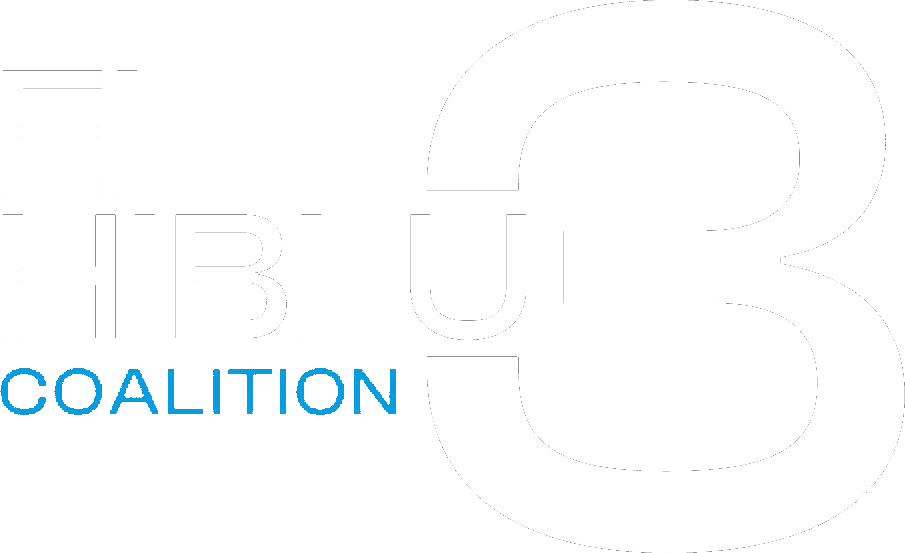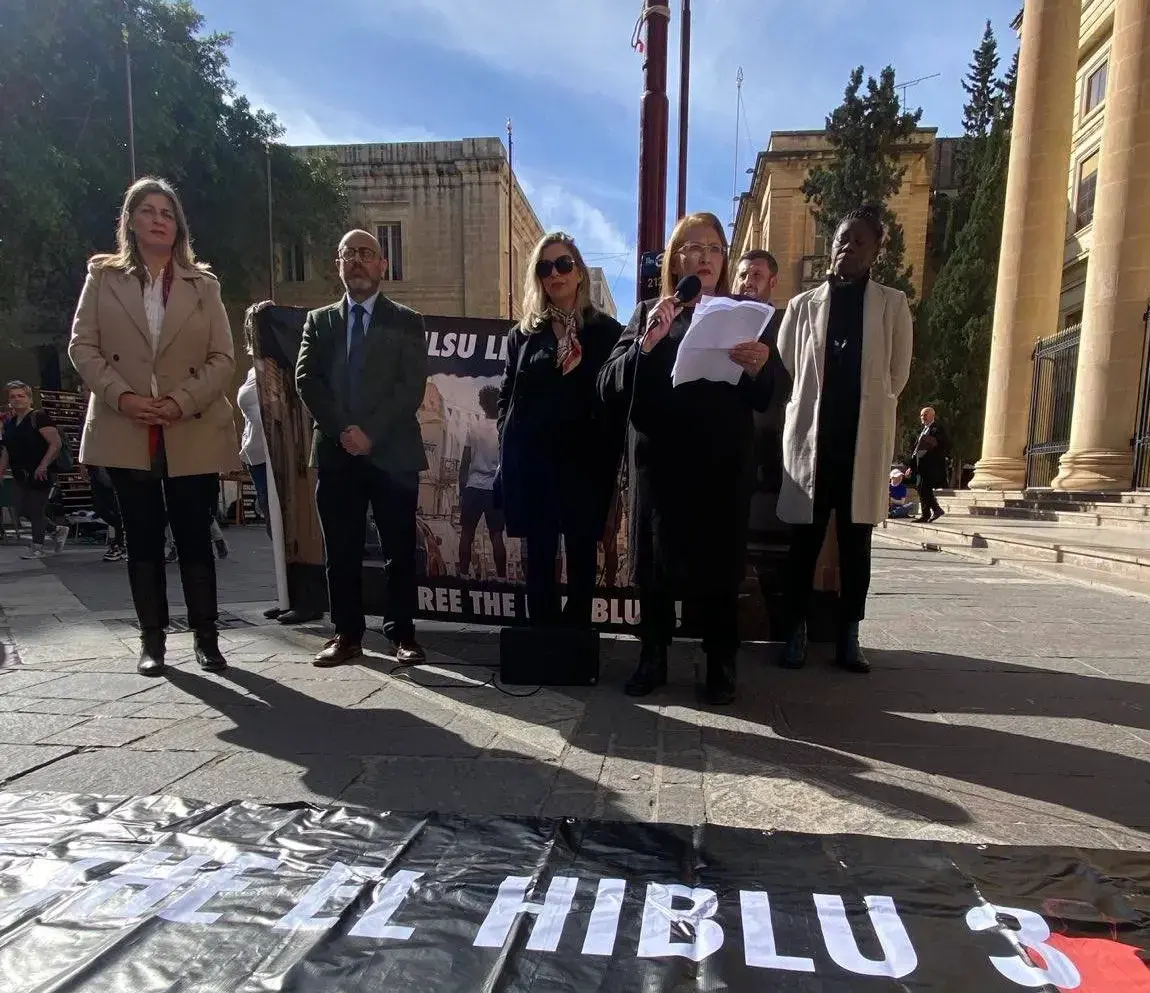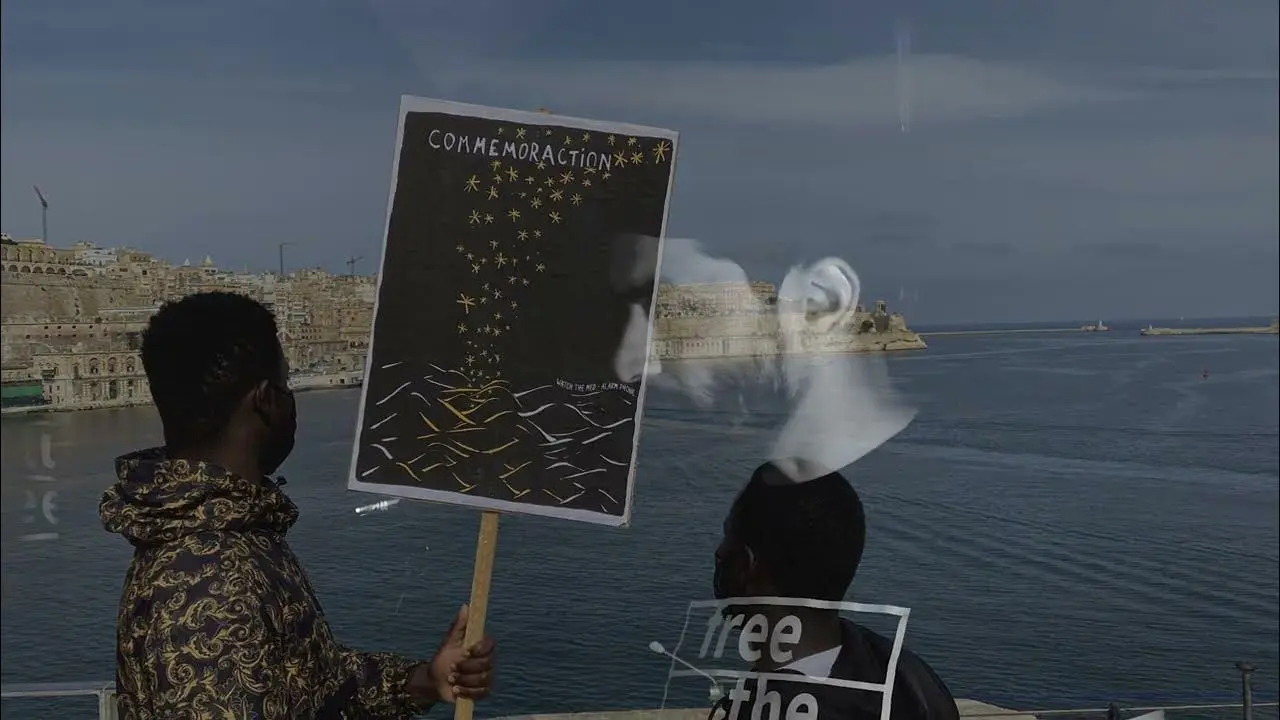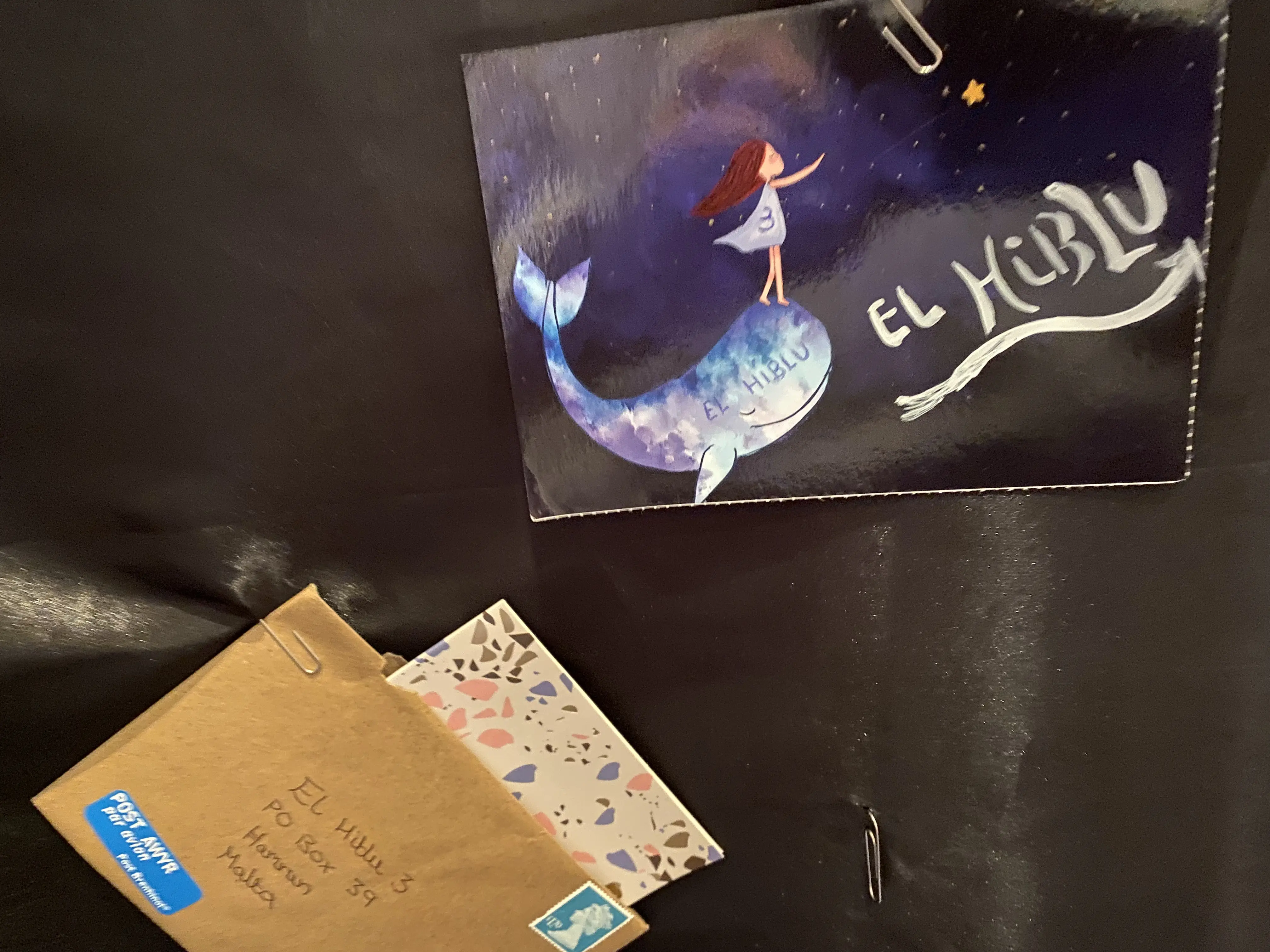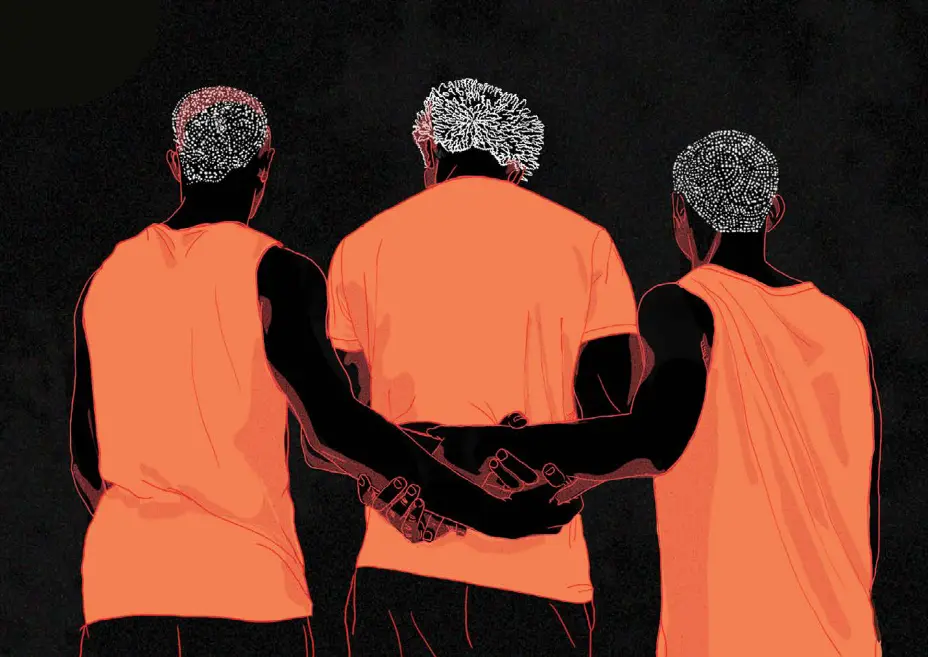· 7 min read
The El Hiblu 3 celebrated as Human Rights Defenders
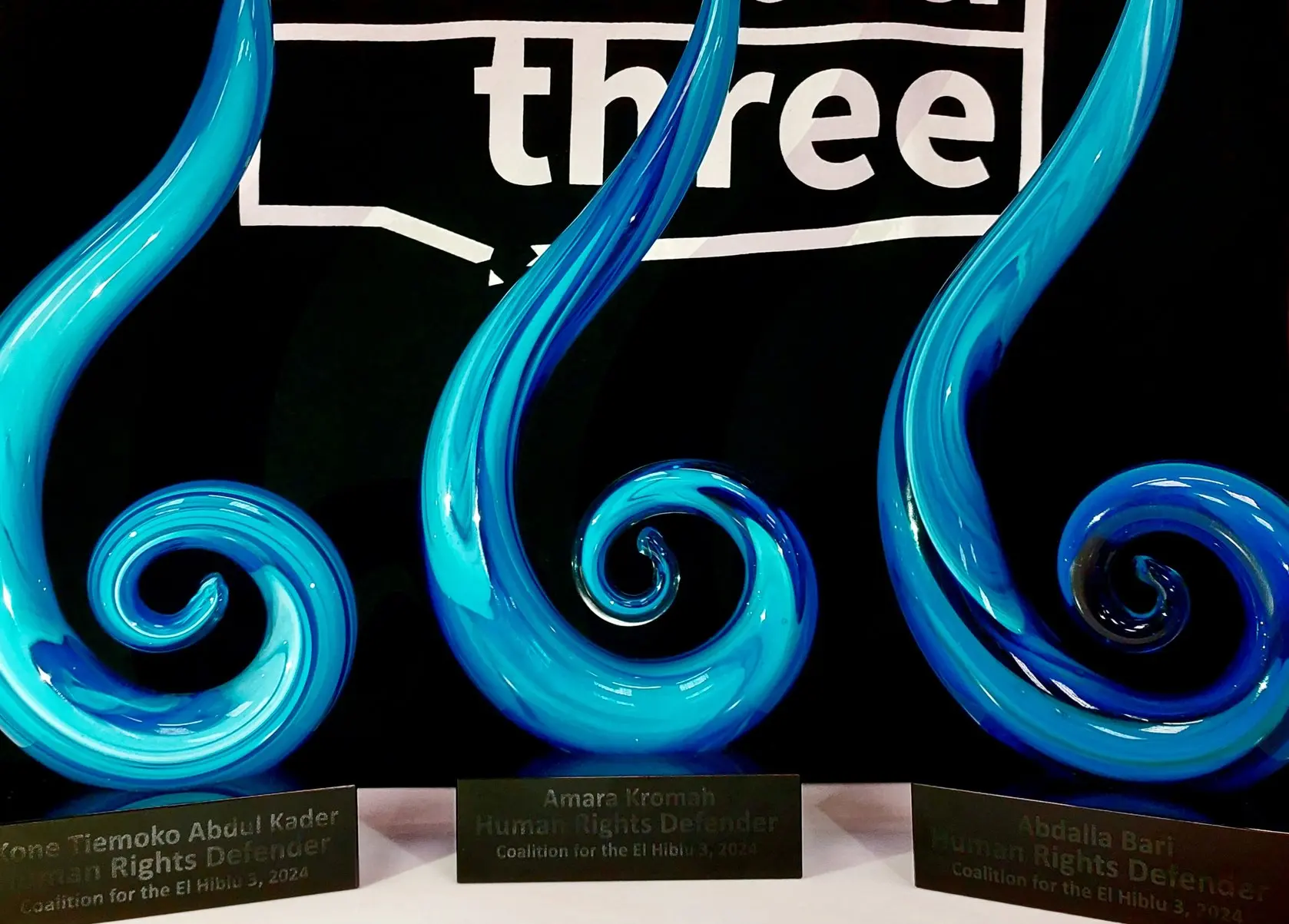
On the 13th of April 2024, the Coalition for the El Hiblu 3 presented Abdalla Bari, Amara Kromah, and Abdul Kader with the Human Rights Defenders Award at the University of Malta in Valletta. The three, known as the El Hiblu 3, received this award for the bravery and solidarity they showed when facing the threat of a pushback to Libya in 2019.
Acting as translators and mediators on the merchant vessel, the El Hiblu, they played an important role in preventing the forced return of over 100 people to a place where they had experienced serious human rights violations. The other survivors have made clear that the El Hiblu 3 saved their lives. For these life-saving actions, they continue to face accusations of terrorism and other serious offences in Malta, five years on.
Besides their defence of human rights at sea, they have also shown tremendous resilience and strength of character during their many years in Malta. While their youth has been stolen and they have had to endure court hearing after hearing, they have built lives and livelihoods in Malta. They have studied, worked, raised a child, made friends and allies. In their struggle against injustice, they have been joined by an international campaign that demands that the charges will finally be dropped.
A few weeks after the fifth anniversary of their arrival to Malta, Her Excellency Marie-Louise Coleiro Preca, the former President of Malta, on behalf of the Coalition for the El Hiblu 3, presented the El Hiblu 3 with an award for defending human rights.
Their bravery and courage have been an inspiration to all Human Rights Defenders across the globe.
Marie-Louise Coleiro Preca, President Emeritus of Malta
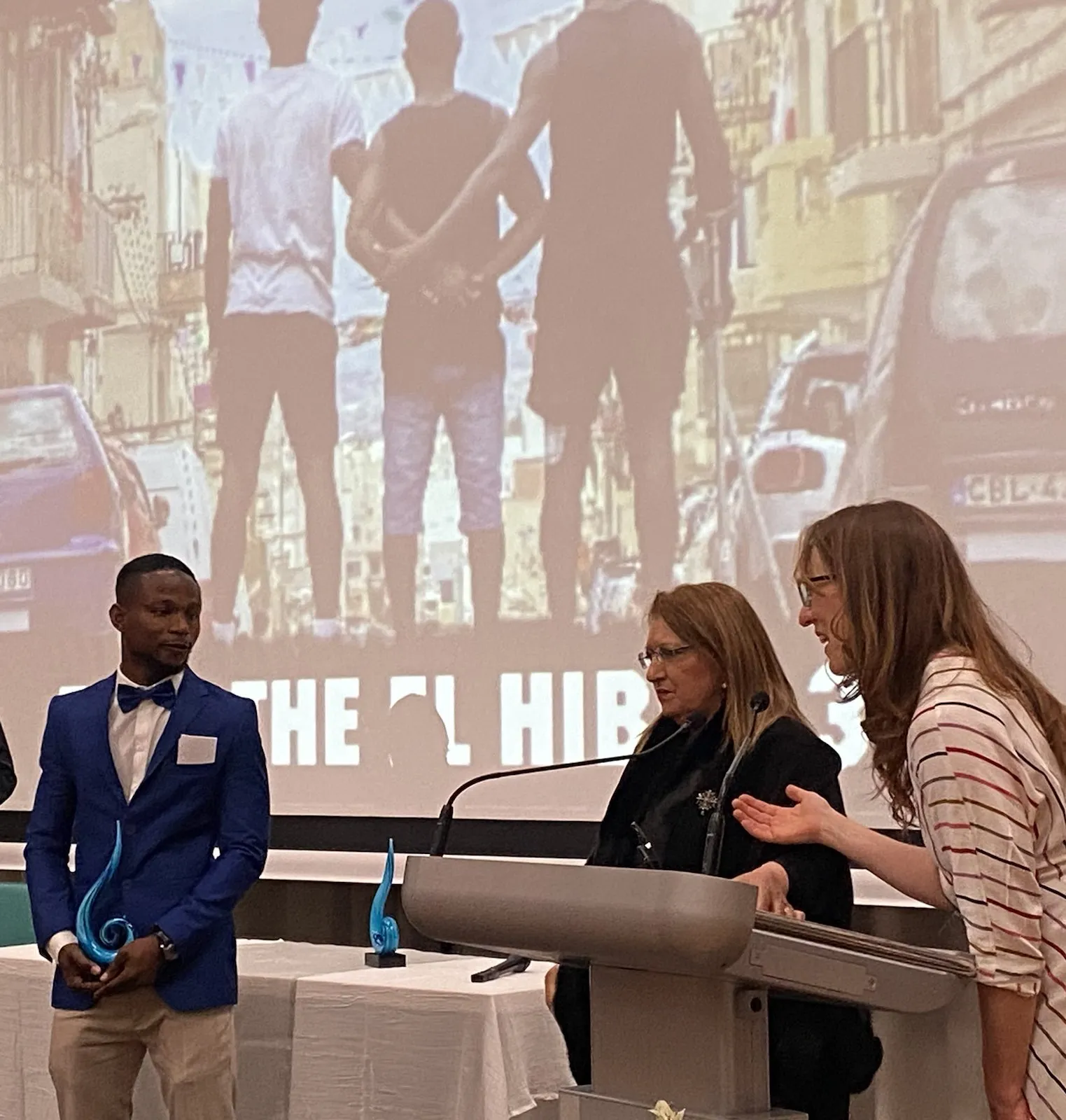
The truth is that, in a world where human rights abuses are far from the exception, and where they happen in places which are out of the sight and reach of most people who would traditionally be described as human rights defenders – out at sea, at land borders or in detention centres – were it not for the actions of individuals like Amara, Abdalla, and Kader, human rights law would be worth little more than the paper it is written on.
Katrine Camilleri, Lawyer and Director of JRS Malta
Five years ago, the El Hiblu 1 ship reached Malta. Instead of thanking these three young men, the Maltese authorities arrested them. The accusations against Abdalla, Amara and Kader still hang over them. Libya was and is still recognised as an unsafe country for migrants. Any human has the fundamental human right to seek protection in a safe place. There is still time for the Maltese authorities to drop the charges. Again we state, these three young men, Abdalla, Amara and Kader, are heroes.
Christine Cassar, Moviment Graffitti
“A passport-selling nation criminalises anyone who dares to ‘challenge’ privilege of movement, be it with their migrating bodies, or with their words – in this case, translation and mediation in a tense encounter. Abdalla, Amara and Kader have been unfairly punished and terrorised. Their courage, resistance and patience are to be celebrated.”
Antoine Cassar, Author of “Passport”
In Italy, the captain of the Asso 28 is convicted because handing over boat refugees to the Libyan coastguard constitutes a crime. In Malta, three young, courageous people are being put on trial because they prevented precisely this crime by acting as moderators and without using violence. We bow our heads to the three human rights defenders and hope that this legal farce will come to an end.
Karl Kopp, Pro Asyl
For those who “discover” to be Black in Europe because of racism, it can be an extremely unpleasant moment, before one gets eventually used to it and develops a defensive and protective mechanism. But it is not easy to develop a strong defensive and protective mechanism without the help and support of the institutions, as society reflects what the institutions do. Racism in Europe today is systemic and institutionalized, and this is not even a cliche, sadly it is true.
Regine Psaila, African Media Association
By trying to prevent an illegal practice, they defended the international obligations that European states are bound to. Dear Abdalla, dear Amara, dear Kader, with your dedication and braveness in March 2019, with your patience and strength in the last 5 years, you uphold fundamental human rights and build a bridge of solidarity, every single day. No border lasts forever.
Marie Naass, Sea Watch
Today, I speak from experience, one that is inhumane, deadly, and unacceptable, a reality in Libya with the complicity of the EU. If Abdallah, Amara, Kader, and the other 100 individuals had drowned, they would have been reduced to mere statistics in the depths of the Mediterranean. Without their intervention to prevent an immoral and illegal pushback to Libya, they could have become part of the thousands of invisible deaths and victims of torture in Libyan concentration camps. Today, I cannot help but commend their courage and determination for standing up as defenders of human rights, a much-needed act during a time when immorality and the abuse of state laws and negligence to legal obligations prevails. This is an opportunity for Maltese authorities to demonstrate their respect and commitment to human rights by immediately dropping the charges.
David Yambio, Refugees in Libya
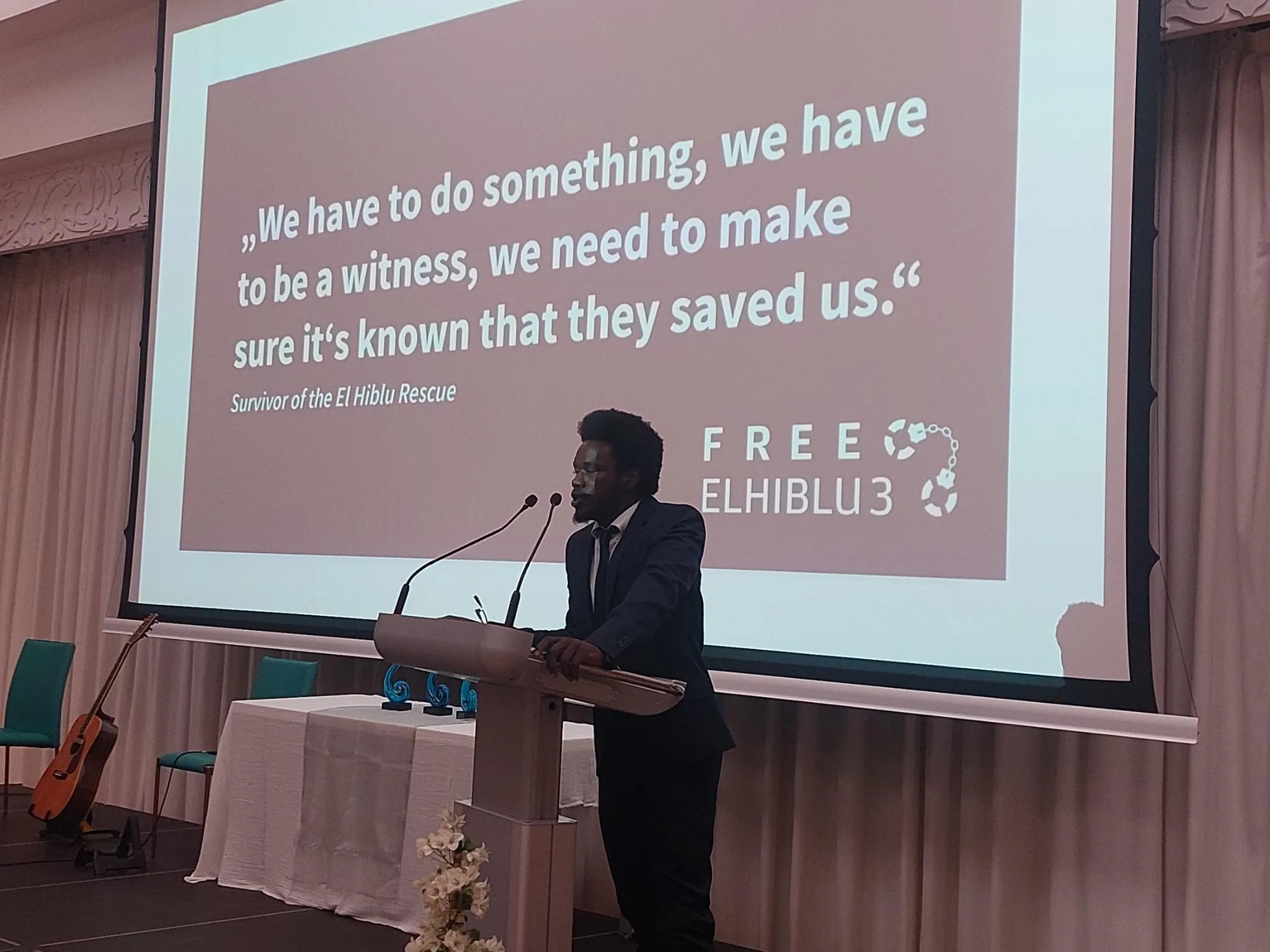
They face a life locked up.
Oh how I wish the state shows some compassion,
and stops going after the small and distraught.
Attorney General, In your hands is the life of the three.
Go now, drop the charges.
And set our friends free.
Gabriel Schembri, poet
(Translation and Excerpt of Il-Ballata tal-El Hiblu Tlieta)
Amara Kromah (El Hiblu 3) upon receiving the award:
Ladies and gentlemen,
I am profoundly honored and humbled to accept the Human Rights Defender Award. First and foremost, I extend my heartfelt gratitude to the organizers of this prestigious event for recognizing the importance of championing human rights, especially in a world where such values are often under threat. I also want to express my gratitude to all who have supported me during these difficult moments of my life. This award is not just a recognition of our efforts but also a testament to our collective commitment toward a more just and equitable society.
Growing up in Guinea, a country with its own challenges and triumphs, I have witnessed firsthand the struggles faced by marginalized communities, particularly the youth. In a society where opportunities are often scarce, and voices are silenced, advocating for human rights becomes not just a choice but a moral imperative. As a young person, I understand the profound impact that human rights violations can have on individuals and communities. This understanding has always inspired me to take a stand against injustice.
Receiving this Human Rights Defender Award holds immense significance for me personally. It serves as a reminder that our efforts can make a difference, no matter how small. This award is a recognition of my long-standing struggle against injustice and a catalyst for future endeavors to ensure justice for all. It reaffirms my commitment to continue fighting for my rights and the rights and dignity of all individuals, especially the vulnerable ones.
As I stand here today, I am reminded of the words of Nelson Mandela, who once said, “To deny people their human rights is to challenge their very humanity.” In a world grappling with systemic injustices, it is incumbent upon each of us to stand up for what is right and just. This Human Rights Defender Award serves as a beacon of hope, inspiring us to redouble our efforts to pursue a world where everyone is treated with dignity, respect, and equality under the law.
In conclusion, I accept this award not only on my behalf but also on behalf of all those who continue to fight for human rights around the world courageously. Let us seize this moment as a reminder of the power of collective action and the possibility of a brighter future for generations to come.
Thank you.
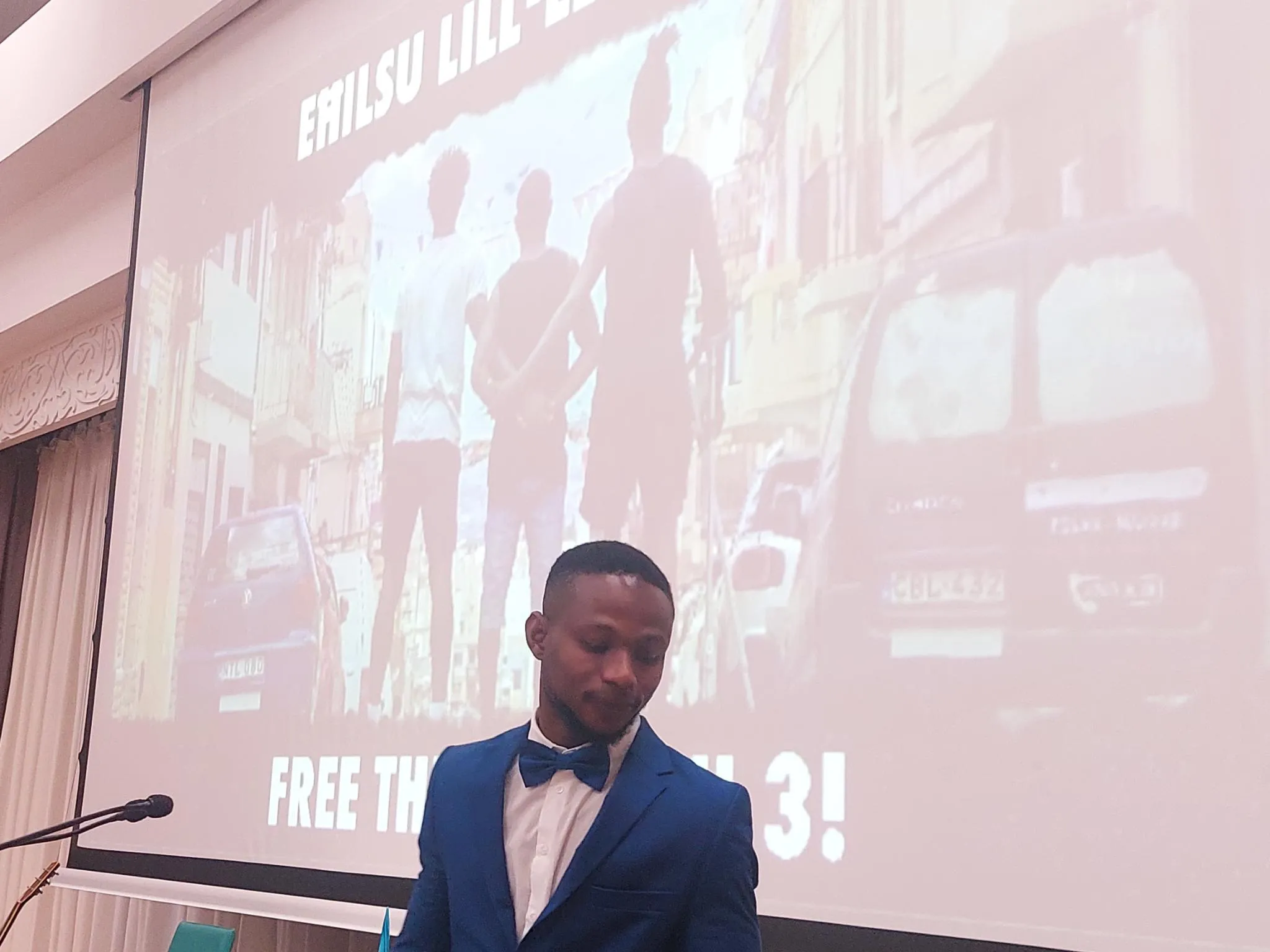
This article was first published with the Civil MRCC.
Watch the video of the award here.
